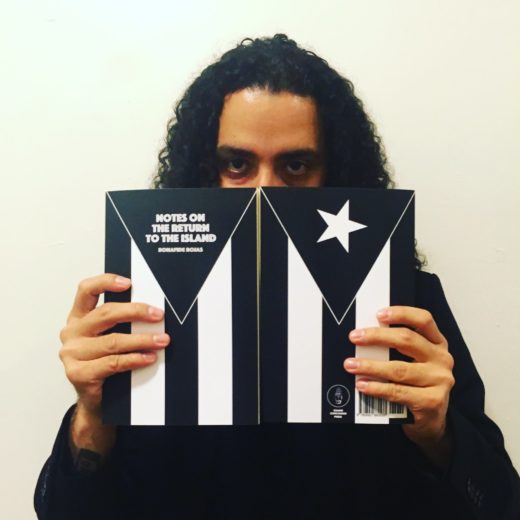
Throughout my life I have had various identities from Puerto Rican to hip hop head, graffiti writer to New Yorker and more. Being “Puerto Rican” has remained the one constant.
I was born in The Bronx, three blocks from the hospital where my mother worked. Within the year we moved to Levittown, Puerto Rico. I lived there until I started kindergarten back in New York City a few years later. I rarely ever bring this up because I don’t see it as necessary information. Does having lived in Puerto Rico validate who you are? Does it make you more Puerto Rican than others?
It’s important to note that Puerto Rican identity is incredibly proud, and full of art and self-expression. It is also heavily influenced by the political strong arm of American colonialism. While researching Puerto Rican identity for my last book, I noticed the narratives have changed through the last century. Depending on the number of Puerto Ricans living in the United States, identity shifts. The US invaded Puerto Rico during the Spanish-American War of 1898 and took the island as a prize of war. By 1917, less than 20 years later, 236,000 Puerto Ricans on the island registered for World War I and 18,000 served in the war. What you do is who you are for many including Puerto Ricans on the island.
My own identity is steeped in politics and resistance; as well as music, art, love for country. But not the stereotypical qualities like speaking Spanish (even though I can) or loving salsa (which I do). Radical Black nationalism, the Cuban Revolution and eventually Puerto Rican nationalism shaped how I viewed myself. It made me more active, more aware of American injustices and made me feel more Puerto Rican.
When I started to understand what nationality and ethnicity were I identified as Puerto Rican or even Boricua. I am often told I look Middle Eastern or Jewish even though I am very white passing. My relationship with my Blackness is much more than the pigment of my skin. Yet I don’t feel it’s ever fair saying I’m Black–in a Black American context–or even Afro-Rican because someone with a darker complexion experiences things in a very different way than I would.
When speaking specifically about New York Puerto Ricans, the term “Nuyorican” comes up often. It refers to the people or culture of the Puerto Rican diaspora located in or around New York City. Other people may know about the term from reading Nuyorican poets like Piri Thomas, Sandra Maria Esteves and Willie Perdomo. Nuyorican pioneers Miguel Piñero and Miguel Algarin even created the Nuyorican Poets Cafe and a consequential literary movement. The Nuyorican is where I came into my own as a poet. It was vital to my artistic development to know that Puerto Ricans established this space for their community.
However I don’t identify ethnically as Nuyorican; I view it as a school of art. We have contributed to a lot of New York City culture that predates the term. Salsa is Nuyorican music, Pedro Pietri’s “Puerto Rican Obitiuary” is a timeless work of art. It is language, art, and music. Nuyorican belongs in the same breath as The Dadaists, the Surrealists, and The Black Arts Movement.
We can all live under the umbrella of this identity. In today’s times it is self-proclaimed rather than a base lived experience or personal, collective narratives. But the differences from a Puerto Rican living in Mayaguez to a Puerto Rican living in Humboldt Park, Chicago to a Puerto Rican living in San Diego creates unique narratives based on environment, education and geography.
Race or physical appearance obviously plays a role in our identity and we should constantly be deconstructing what it means. Puerto Ricans come in a broad range of hues thanks to our lineage and multi-ethnic influences not just Taino, African and Spanish. The immense presence of colonial powers in our collective history makes race a bigger factor in who we are. Spain does not uplift blackness nor does the United States.
Ultimately, there is no one road to finding your “Puerto Rican-ness.” It’s different for everyone. Sometimes it’s even based on how inadequate a person might feel. I have had times when I didn’t feel Puerto Rican enough for others because I didn’t partake in bomba y plena or salsa parties. I stuck out for being a rock & roll poet/musician. Then I met other like-minded people throughout the years such as the Puerto Rican punk band Ricanstruction which allowed me to breathe easier about how I viewed myself. That’s all to say, there is no wrong or right way to be Puerto Rican. We all have preferences but they’re not law. Each one of us has our own path to walk to finding and living in our identities.
